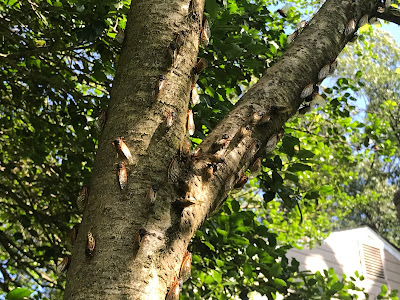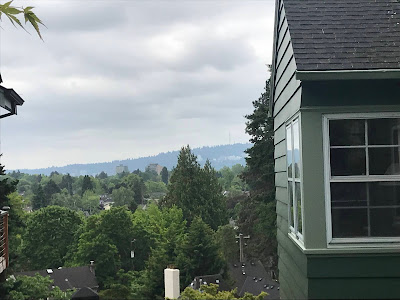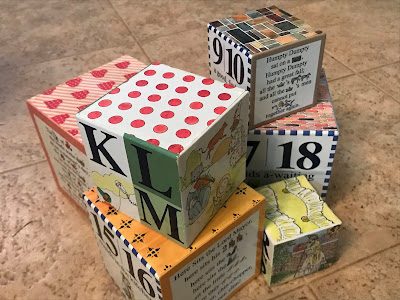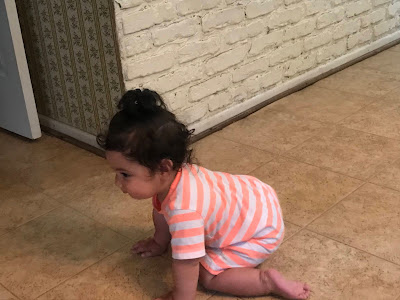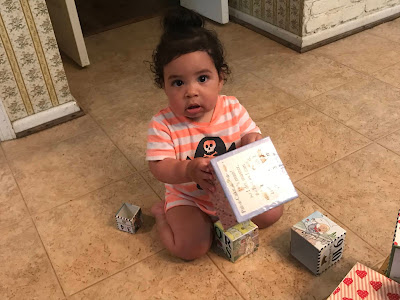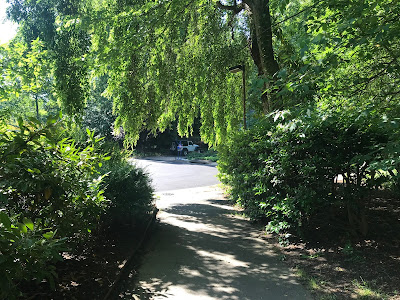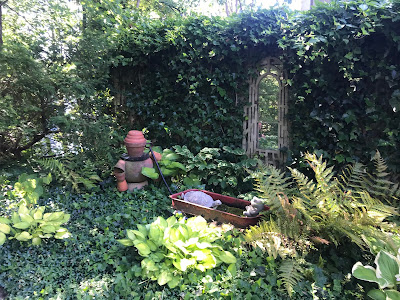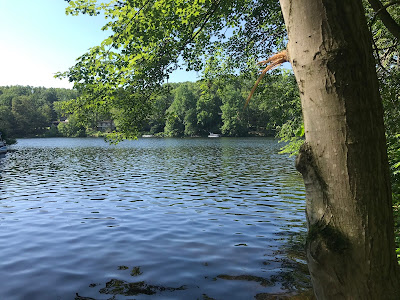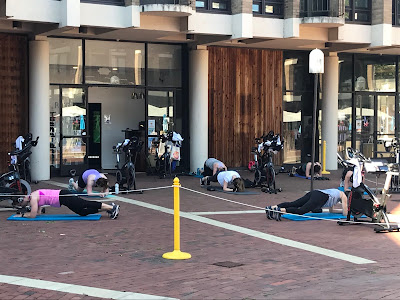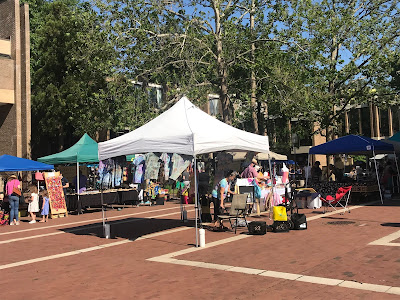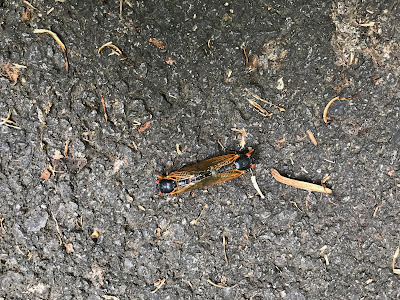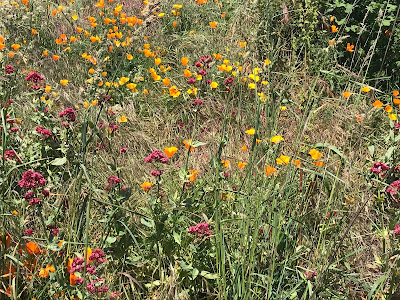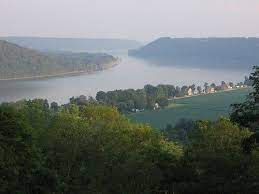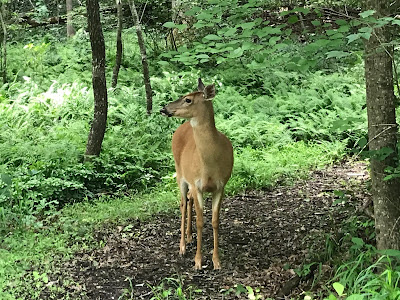Love Bites?
Skin: For so much of the year it’s just there, boon and barrier, boundary between world and self.
In winter it may chap or dry, nothing lotions can’t handle. But in summer, ah, in summer — well, I forget every year that I’m not the only one who likes to be outside all day and into that evening, that there are skeeters and spiders and no-see-ums that leave their marks.
In time (starting day before yesterday!), I’ll spray on repellent if I venture beyond the deck. But up until then I’ve weeded and bounced and walked with springtime abandon, forgetting that the insects are out there too, biting and stinging their way into summer. As a result, I’ve been making liberal use of the hydrocortisone cream.
On the other hand … it’s finally warm. My sweaters are packed away with cedar balls. I don’t exactly love the bites — but they’re worth it.
(Photo of cicadas, which do not bite but which may confuse your arm or leg for a tree trunk.)
